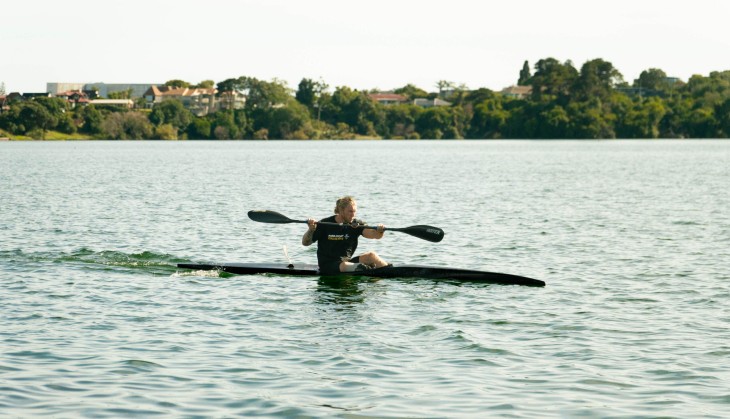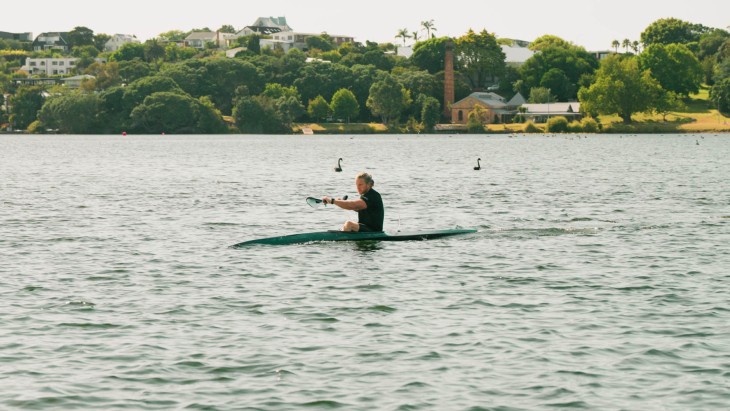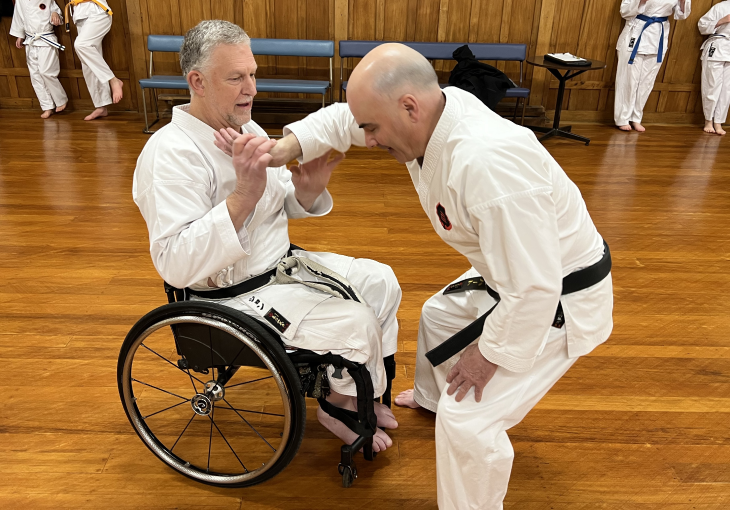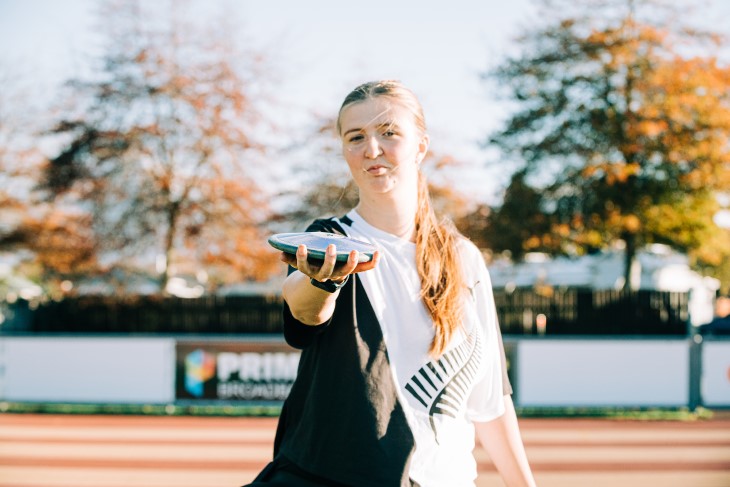Finn’s story: ‘I can do 99 per cent of what I used to’

The life of keen sportsman Finn Murphy changed when his leg was amputated after a motorbike accident. Now a member of the ACC-supported Para Sport Collective, he’s targeting a place at the Paralympics.
The thought of having a limb amputated is a daunting prospect for most but, for Auckland-based Para-canoeist Finn Murphy, it was the easiest decision he’d ever made.
In constant pain and unable to live how he wanted, Finn chose to have his right leg cut off below the knee almost a year after a catastrophic motorbike accident.
Now he’s on a quest to qualify for the Los Angeles Paralympic games in 2028.
“The decision to amputate was wrapped in hope,” Finn says.
“Unlike people who wake up in hospital and it’s already gone, I was lucky to have the choice and that made it easier to process.
“You might lose 4kg of bone but you gain a whole new perspective. These days, my life is very similar to how it was before and I can do about 99 per cent of what I used to.
“What’s changed my life most hasn’t been losing the leg but getting back into sport. I never would’ve imagined doing what I am now.”
A life changed forever
Growing up, Finn played rugby and football but rowing was his forte. In 2016, he and his brother Eli won gold in the men’s club double sculls final at the national rowing championships.
But as he got older and became career-focused as a tradesman, sport became less important and he was living life by going through the motions.
Then, on 16 October in 2021, his life changed forever.
With his car out of action, Finn hopped on his motorbike to get a covid vaccination and that’s when disaster struck, after a van cut across his path when he was entering a petrol station.
Finn slammed his brakes on at 70kp/h and went flying into the side of the vehicle.
His shattered leg was the least of his worries as Finn also fractured his ribs, sternum, clavicle and spine, had a brain bleed and a pulmonary embolism. In all, he needed 31 hours of surgery and spent nearly three weeks in hospital.
It took six months to be able to walk and it didn’t take long to realise life would be challenging if he kept his leg, with constant pain and discomfort.
The screws and bolts holding his leg together had shattered after a trip to the UK, which was the final straw.
“The doctor told me I’d have the opposite problem to most amputees – I’d be too eager in recovery, push too hard,“ Finn says.
“Slowing down was a challenge. That over-eagerness probably contributed to complications.
“I held on to it for almost a year before I chose to amputate. That time allowed me to come to terms with the fact that the leg I had wasn’t going to let me live the life I wanted.”

‘I wanted a fresh start’
Unable to continue his work as a tradie, Finn got back into studying with a Bachelor of Science degree at the University of Auckland and always had Para sports in mind when considering amputation.
He was eager to try sailing, weightlifting, athletics, rowing and canoeing, and received a response regarding the latter within 25 minutes of his email, which sealed the deal.
Despite his previous success as a rower, those skills didn’t translate to the canoe, and he admits there was a tough adjustment period, falling into the crisp waters of Lake Pupuke in Takapuna every day as he learned the art.
“They’re entirely different sports, apart from the fact you’re in a boat on the water,” he says.
“That’s what drew me to kayaking after my accident – I didn’t want to go back to something I’d already been decent at.
“I wanted a fresh start, where I had no history or expectations.”

Para Sport Collective proves inspirational
Finn’s now putting the Para-canoe world on notice, thanks to coach Gavin Elmiger, while working alongside former K1 200m world champion Aimee Fisher.
Para-canoe is often competed over 200m and Finn competes in the KL3 class, which is essentially the people with the lowest level of impairment.
“The times I’m doing are competitive. Being relatively new to kayaking – experience-wise, not age-wise – means I’ve still got room to improve,” he says.
Finn credits the Para Sport Collective for being able to adjust.
“It’s bringing athletes together who are facing similar challenges,” Finn says.
“Some have been amputees far longer than I have or have different perspectives. Their input has been hugely helpful.
“That whole programme is a fantastic introduction to performance psychology and the elite sports pathway.
“We’ve had inspiring talks from former Paralympians – gold medallists, and guys like Cam Leslie. Hearing their stories was really motivating."
Despite everything that’s happened, Finn hasn’t ruled out getting on a motorcycle again.
“Technically, I could get back on a motorbike,” he says.
“But the main reason I don’t is my parents – they wouldn’t sleep peacefully if I did.
“Maybe one day I’ll look into dirt biking but I won’t be getting back on a road bike any time soon, if ever.”
More about the Para Sport Collective
Supported by ACC, the Para Sport Collective is a three-year initiative from Paralympics NZ, aimed at supporting pre-high performance Para athletes and coaches to achieve their goals, after a need was uncovered for greater support.
“Sport has the power to transform the lives of disabled New Zealanders – involvement in Para sport is so important to rehabilitation and wellbeing in general,” ACC Chief Executive Megan Main says.
“At ACC, we want to generate opportunities for disabled New Zealanders to participate and compete in Para sport. So we're thrilled to be supporting athletes at this pre-high performance stage of their journey.”
More information is available on the Paralympics NZ website.





